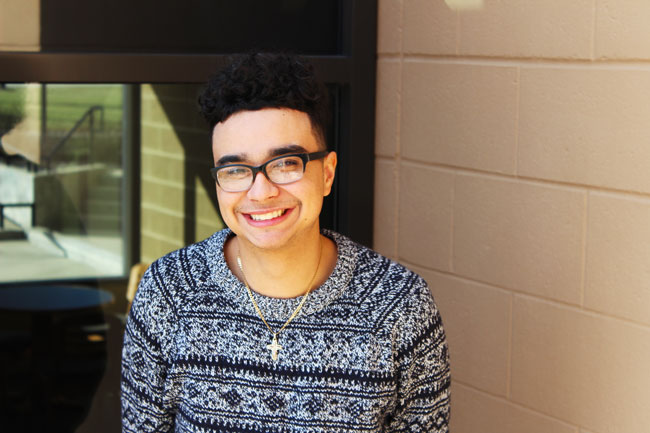Bruh!
1. Who needs a label?On a regular basis, I find that I address the question “What are you?” which basically means “What’s your ethnicity?” or “What race do you hail from?” This usually leads to a very long conversation that often confuses quite a few people. “I am Puerto Rican and Dominican.” This response is usually followed up by confused looks and questions along the line of “Sooooo, is that like Latino? ‘Cause you kind of look black.”
In my hometown of Brooklyn, New York, the question, “What are you?” rarely seems to be something I encounter. It is just assumed that I am either Puerto Rican, Dominican or, on a good day, both. In Goshen, on the other hand, this seems to be a common enigma for people, and I understand it.
My assumption is that several people in Goshen have not encountered people who come from a small island culture, so most people don’t know what it means when I say I’m Puerto Rican and Dominican. For example, in the same way, I wouldn’t know what it means if I were to meet someone from Borneo (a small island south of the Asian continent).
The reality is that I’ve learned to live outside the norm and any conventional labels that people may have. I have learned to develop an identity based on who I am, rather than a tag that society provides for me. Throughout my life, I keep being pushed back and forth. I am too black for many Latinos and too Latino to African American friends. Being multiethnic makes it difficult to fully relate to any one specific group.
This can be a blessing and a curse. Sometimes, it becomes really hard to not have a solid social identity. Other times it’s nice to not be labeled and feel like I can relate profoundly with many different groups of people.
2. Just because I speak Spanish doesn’t mean I am Mexican!
People in Goshen often assume that I can either speak Spanish or I can’t. I feel like this can be attributed to the fact that I don’t phenotypically look like the typical person they would hear speaking Spanish. But many times, after hearing me speak, they ask something along the lines of “Are you Mexican?”
This can be frustrating because it is very well known that not everybody who speaks Spanish is inherently Mexican or even South American. Don’t get me wrong, I’m not hating on those cultures at all, but imagine if every time you wore a basketball jersey people would ask you if you are a big fan of badminton. They are both sports, but they too are different.
3. Latino is not a race.
Many times, in Latino media, people are usually portrayed in a very homogenous way. The majority of the people in the media have Eurocentric or mestizo (a man of mixed race, especially the offspring of a Spaniard and an American Indian) look to them. But this is not a full representation of all Latin America. Sure, there are Anglo Latino and mestizo, but there is so much more to Latin America.
There are very prominent indigenous populations that have influenced some Latin cultures very heavily. In the Caribbean, where my family is from, there is a more prominent African slave impact. There are so many different races within Latin America that make every culture unique. If someone says that they are a Latino from an indigenous tribe or they are mestizo or Afro-Latino, it doesn’t make them any less Latino or Hispanic.
It just means that they are different racially. I personally consider myself a Mulato Latino which means that I am a mix between black and Anglo, but I am just as Hispanic as any other Latino of any other race.
4. Being Latino doesn’t mean I am an immigrant.
In the current political climate, we see very strong assumptions and conclusions being thrown around about the legal status of many Hispanic people. Many Mexican people are being labeled as immigrants or criminals. For many, this is a very hard issue that has a profound effect. But for me this doesn’t have as much of an impact. I fully support people who go through these struggles, but for me to pretend that I go through the same thing would be a lie.
5. I don’t eat spicy food, love soccer or listen to mariachi music not because I am a “bougie” American. It’s because that’s not my culture.
Even though Latin America is connected in a lot of areas many places are very culturally different. For some places, the only cultural connections that are shared are language based. Latin America basically accounts for territory that was once conquered by the Spanish empire. Many of these places still speak Spanish to this day, but the cultures, histories and traditions of many of these countries are unique. If you ask me if I eat tacos, play soccer or wear sombreros, the answer will be a very firm no.
The world: “what are you?”
Me: “It’s complicated…”



